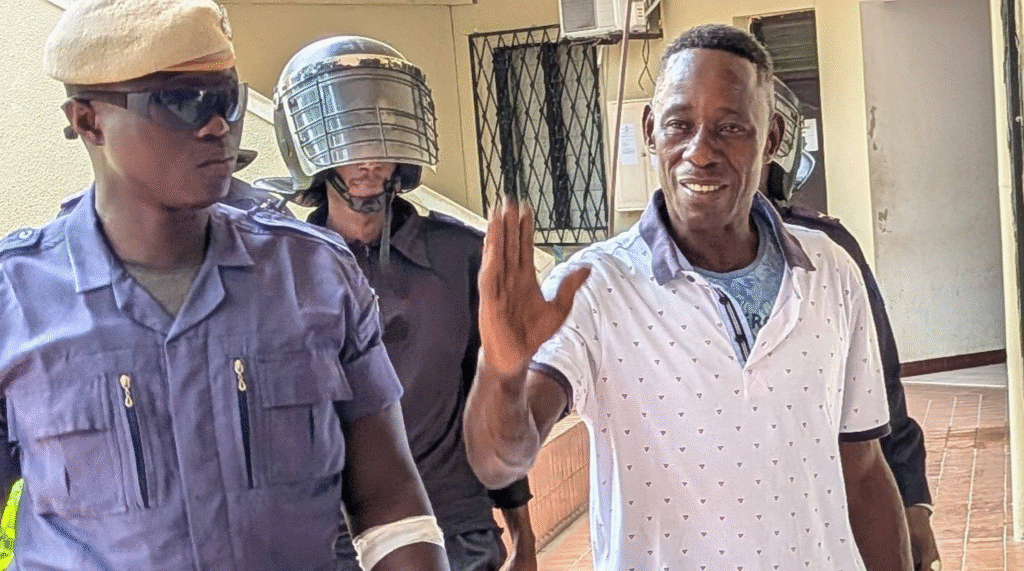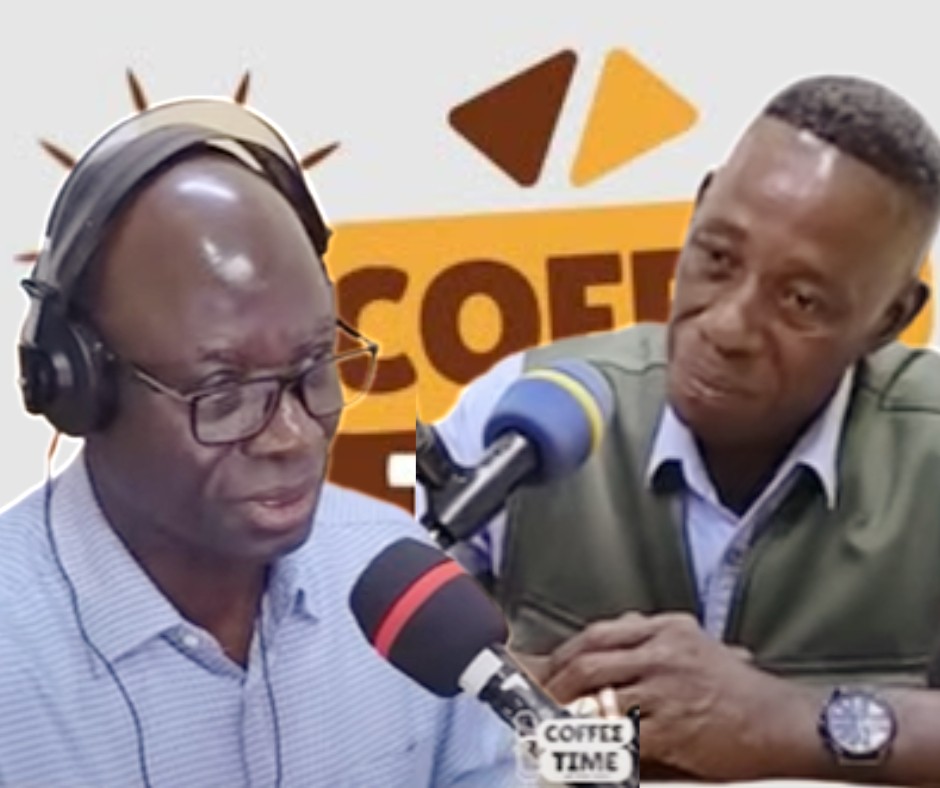
Justice Ebrima Jaiteh of the High Court has upheld the defence’s objection to the admissibility of key state evidence—a statement obtained from senior journalist Peter Pocha Gomez of West Coast Radio—in the criminal case of The State vs. Abdoulie Sanyang.
The ruling centred on a statement prepared by senior journalist Peter Pocha Gomez, which the prosecution sought to introduce through its first witness, but failed to both disclose the document to the defence and to tender the statement through its proper author.
Abdoulie Sanyang faces charges of arson (connected to the burning of the APRC bureau) and Offences Relating to Judicial Proceedings (Section 99(1)(i)), describing the ongoing Ousainou Bojang trial as a “clandestine court,” which the prosecution deems contemptuous both stemming from a radio interview with Peter Gomez of West Coast.
When the case was called, Counsel S. L. Jobarteh presented the prosecution’s case against Abdoulie Sanyang on the two counts. Counsel L. J. Darboe appeared for the accused.
The prosecution’s first witness, Mbye Conteh, a police officer from the Special Investigation Unit, testified that he recognised the accused in connection with an investigation panel set up after the utterances the accused made during an interview on West Coast Radio.
Mbye Conteh stated that the accused was questioned about his remarks and his alleged involvement in the arson.
The witness testified that the radio program host, Peter Pocha Gomez, was reportedly surprised by the accused’s on-air remarks, even attempting to “put him on the right track,” but the accused insisted on “revealing the truth.”
State Counsel then attempted to tender the statement and video footage of the interview. The statement of Peter Gomez, which the witness had identified as Peter’s, was attempted to be tendered as evidence.
Defence Counsel L. J. Darboe objected to the tendering of the document on two grounds:
On non-disclosure, counsel J. Darboe argue that the document had not been disclosed to the defence before the trial, asserting that it violated the accused’s right to a fair hearing and full disclosure.
Secondly, lack of proper maker, Counsel Darboe argued that the witness, Mbye Conteh, was not the author or “maker” of the statement and it was authored by Peter Pocha Gomez. He asserted that Peter Gomez should appear in court to testify for himself.
In response, State Counsel Jobarteh countered that the document was relevant, bore Peter Gomez’s signature, and that the objection regarding non-disclosure was invalid.
After considering the submissions from both counsels, Justice Ebrima Jaiteh delivered a ruling, confirming the document’s non-admissibility.
The Presiding Judge Justice Jaiteh highlighted legal points stating that relevance alone is insufficient, adding that relevance is a condition for admissibility under Section 3 of the Evidence Act, but the document must also satisfy conditions regarding authorship, authenticity, and proper foundation.
On his second point, Justice Jaiteh stated that the maker must tender the document. Justice Jaiteh stressed the “rule that a document should be tendered through its maker or a settled principle of law,” intended to ensure reliability and allow the opposing party to test its authenticity through cross-examination.
Justice Jaiteh point out that the prosecution failed to lay a proper foundation under Section 96 of the Evidence Act to justify tendering the document through the current witness, Mbye Conteh.
The non-disclosure of the document to the defence was deemed a violation of the accused’s constitutional right to a fair hearing, guaranteed under Section 24(3)(b) of the 1997 Constitution of The Gambia. Justice Jaiteh ruled that the failure to furnish the Defence with the document beforehand is a “fatal and critical element” to its admissibility.
Justice Jaiteh made his final decision on three pillars on the evidence and legal arguments that the document was not disclosed to the defence conceded by the prosecution, PW1 (Mbye Conteh) is not the maker of the document and no legal foundation has been laid under the Evidence Act, 1994, to justify its tendering through PW1.
Accordingly, the objection of the Defence is upheld, Justice Jaiteh concluded. The statement, dated September 19th, 2025, and authored by Peter Pocha Gomez, was returned to the prosecution to follow the due process for its admissibility.
The case is adjourned until tomorrow for the continuation
By Kexx Sanneh.


